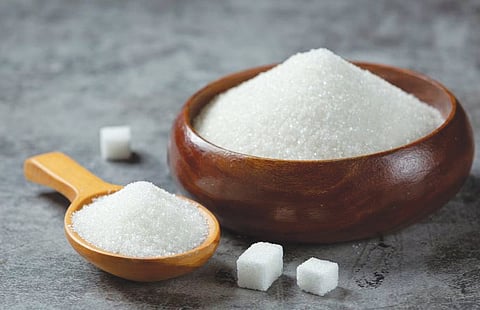

CHENNAI: Did you know that artificial sweeteners can be harmful not only to human health but also to the environment? According to Prof Aparna Kuna, principal scientist and head of the MFPI — Quality Control Laboratory at Prof Jayashankar Telangana State Agricultural University, Hyderabad, artificial sweeteners are classified as ‘emerging pollutants’ or ‘emerging contaminants’. These substances, though present in very low concentrations, have the potential to adversely affect both human health and the environment. They are often referred to as trace pollutants due to their minute concentrations (micrograms or milligrams per kilogram dry weight) in the environment.
Dr G Niharika, assistant professor and program coordinator of Food Science & Technology at GITAM University, Hyderabad, highlights that artificial sweeteners pose significant threats to aquatic ecosystems. Algae, water fleas, aquatic plants like duckweed, and enchytraeids in the soil are particularly vulnerable to these pollutants. The primary way artificial sweetener residues reach soil and water bodies is through human excretion. These sweeteners are not easily metabolised, remain unchanged, and are poorly absorbed by the body, leading to their excretion via urine and feces. Consequently, they enter wastewater treatment plants (WWTPs) but often escape even the most efficient treatment processes.
Prof Aparna outlines the potential environmental impacts of artificial sweeteners:
Toxic effects on soil, aquatic, and terrestrial organisms
Contamination of water derived from septic system effluents
Presence in groundwater (2.0 to 4.7 percent)
Indirect effects on human health, including disturbances in microbiota and insulin response
Additionally, artificial sweeteners from industrial and medical sources can be translocated from soils to plants and eventually to consumers through vegetables and fruits irrigated with treated or untreated water. This contamination can impact plant photosynthesis and contribute to health problems through drinking water.
Dr Niharika points out that artificial sweeteners are known for their extreme persistence and ubiquitous nature, resisting wastewater treatment processes and continuously entering aquatic environments. To address these issues, she suggests focussing on permissible limits for artificial sweeteners in food products and considering natural sweeteners as healthier alternatives. Natural sweeteners like stevia, agave, tagatose, or honey offer more sustainable options compared to traditional sugar. Additionally, improving wastewater treatment through methods like UV irradiation can help manage these contaminants. Reducing the production and consumption of artificial sweeteners will minimise their adverse effects on both the environment and human health.